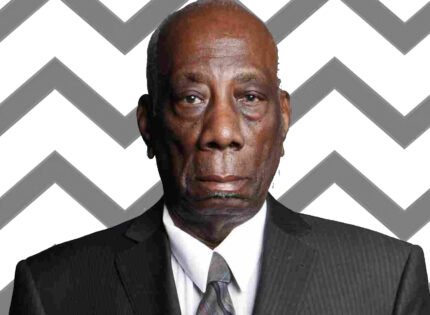 By: Arielle de Pagter
By: Arielle de Pagter
Karina Jackson is in pursuit of holistic health care for her community. An occupational therapist, Jackson works at Nuvo Physio, a physiotherapy clinic that offers specialised services to assist people before, during and after pregnancy. Listening to Jackson describe the path she travelled that led her to work with expectant and new parents is a reminder that you may not always know what direction life will take you, but if you trust your instinct and vision you’ll find yourself where you’re meant to be.
Jackson knew she wanted to dedicate her career to helping people but was unsure exactly what field suited her until a psychology professor during her undergraduate degree suggested occupational therapy. “Occupational therapy is a holistic and evidence-based practice that helps people continue to participate in any activity– physical or cognitive– that’s personally meaningful to them,” describes Jackson, “we’re trained to understand a variety of medical conditions and how they impact a person’s independence.” Jackon says her job is to look at every aspect of a patient’s life from their environments, habits and daily routines, to assess and address the pain they are experiencing. This approach, which Jackson calls biopsychosocial, considers the person’s physical, emotional and social well-being. Taking the time to listen to patients is essential to the work of an occupational therapist and it’s what cemented Jackson’s interest in the profession.
Upon graduating from McGill with her master’s degree in occupationalv therapy, Jackson began working in a hospital setting where she specialised in hand therapy. After several years working in this setting she grew frustrated with the limitations of the public healthcare system. “The passion and the fire that fueled me started to extinguish a bit and I found myself at a crossroads,” says Jackson, describing the experience that would eventually lead to burnout.
Despite this period of struggle, the burnout gave Jackson time to reflect on her next career steps, knowing the hospital setting did not offer her the holistic, patient-centred approach that drew her to occupational therapy in the first place. She was committed to finding a workplace where she could prioritise her mental health– an environment where she felt safety and belonging. That’s when she stumbled on Nuvo Physio, “I was like ‘oh my gosh, this is a physio clinic founded by people of colour,’” Jackson recalls. Her experience in hand therapy gave her an in working with pregnant and postpartum individuals who suffer significantly more hand injuries from parenting activities.
From optimal breastfeeding positions, to safely carrying heavy baby carriers Jackson started incorporating occupational therapy into the clinic’s maternal and pregnancy support services. Now Jackson also consults Nuvo Physio’s patients on c-section preparation and recovery and provides postpartum patients with psychosocial support while they navigate their new lives as parents. “Perinatal mood and anxiety disorders are quite common in Canada […] providing awareness to the postpartum person and their partner so they know the signs and symptoms is so important,” says Jackson. She offers new parents who struggle with these issues practical tools to cope while they go through mental health recovery.
As she expands her fields of expertise Jackson reflects on a common theme she has noticed in her practice– the pressure to bounce back. She wants to emphasise the importance of rest and embracing self care for new mothers and birthing parents, acknowledging that this can be especially difficult for black and racialized mothers. “Historical trauma has created a sense of resilience and self-reliance that can sometimes discourage black folks in our community from seeking help […] I do think that’s a major player in maternal mental health, I have no doubt that black mothers will be less likely to face their mental illness but also to recognize it and name it.” Thinking back on her own period of burnout Jackson describes the pressure she felt as a black woman to not stand up and ask for the rest she so needed, “I was worried that my sick leave wouldn’t be deemed as valid […] I thought I would look like a failure.” Now she’s encouraging women and birthing parents to use their voices to advocate for themselves and put their health and well being first.
A mentor at McGill, Jackson also encourages her mentees, students coming from racialized backgrounds, to use their voices. “As a black woman in health care, to me representation signifies the presence of role models, advocates, allies, people who understand the unique challenges, experiences, and disparities faced by black women as we navigate the healthcare system.” She wants her students to understand that they don’t need to move mountains in order to make a difference in the lives of their patients, “just seeing your face and knowing your experience and knowing that you come from a place of understanding with another person who may share a similar cultural background is profound in itself […] to just listen, is profoud.”













1 Comment
Stevo Liouitch February 29, 2024 at 7:07 pm
Karina is an amazing occupational therapist and works with a fanstic team at Nuvo Physio. You can find out more about her services at otwithkarina.com and nuvophys.io/services/occupational-therapy
Highly recommended!